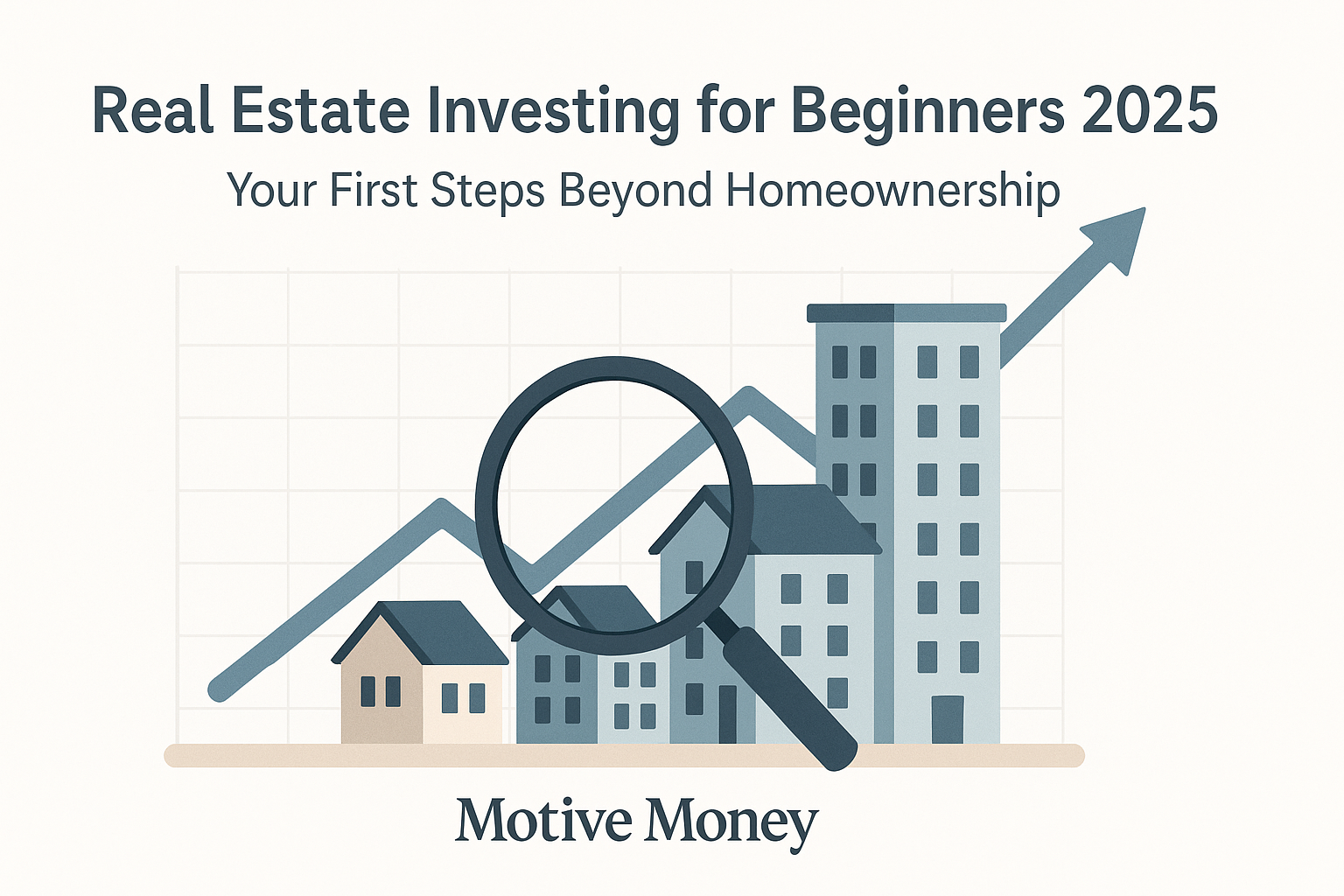For many, owning a home is the pinnacle of the “American Dream.” But what if real estate could be more than just a place to live? What if it could be a powerful engine for wealth creation and passive income? In 2025, real estate investing for beginners offers numerous avenues to enter the market, extending far beyond simply buying a primary residence. Whether you’re looking for a steady income stream, long-term capital appreciation, or portfolio diversification, understanding these first steps can unlock significant financial opportunities.
The real estate market, while seemingly complex, can be surprisingly accessible with the right knowledge. It’s often lauded for its ability to generate consistent returns and act as a hedge against inflation. However, the traditional image of being a landlord might deter some. Fortunately, the modern landscape of real estate investing has diversified, offering options that require varying levels of involvement, capital, and expertise.
This comprehensive guide will serve as your blueprint for real estate investing for beginners in 2025. We’ll explore popular entry points like rental property investment, demystify how REITs explained can simplify ownership, and introduce the growing world of real estate crowdfunding, helping you identify the best path to begin generating passive real estate income.
Why Real Estate Investing?
Real estate has historically been a popular investment for several reasons:
- Potential for Appreciation: Property values can increase over time.
- Passive Income: Rental income can provide steady cash flow.
- Inflation Hedge: As inflation rises, property values and rents often increase.
- Leverage: You can control a large asset with a relatively small down payment (using a mortgage).
- Tax Benefits: Various deductions (mortgage interest, property taxes, depreciation) can reduce your taxable income.
Real Estate Investing Options for Beginners in 2025
You don’t need to be a landlord to invest in real estate. Here are several ways to get started:
- Direct Rental Property Investment (Residential or Commercial):
- What it is: Buying a physical property (single-family home, duplex, apartment building, commercial space) and renting it out to tenants.
- Pros: Direct control, potential for significant appreciation and cash flow, tax benefits.
- Cons: Requires significant capital (down payment), ongoing management (tenants, maintenance), higher risk if not diversified.
- Best For: Those willing to be hands-on or hire a property manager, with sufficient capital and a long-term view.
- REITs (Real Estate Investment Trusts):
- What it is: Companies that own, operate, or finance income-generating real estate. They trade on major stock exchanges, similar to stocks. Think of them as mutual funds for real estate.
- How REITs Explained: They allow you to invest in large-scale real estate portfolios (like shopping malls, apartments, data centers, hotels) without directly buying, managing, or financing property. REITs are legally required to distribute at least 90% of their taxable income to shareholders annually, often resulting in high dividend yields.Dividend Investing for Passive Income: A Beginner’s Guide to Earning Regular Cash Flow.
- Pros: High liquidity (can buy/sell easily), diversification, professional management, regular dividends, lower capital requirement than direct ownership.
- Cons: No direct control, share price can fluctuate with stock market volatility.
- Best For: Investors seeking passive real estate income and diversification without the headaches of direct property management.
- Real Estate Crowdfunding:
- What it is: Platforms that allow multiple investors to pool money together to fund real estate projects (e.g., commercial developments, apartment complexes, rental properties). You invest a smaller amount in a larger project.
- How it Works: You can invest in debt (earning fixed interest payments) or equity (earning a share of profits and appreciation) in various property types.
- Pros: Low entry barrier (can start with as little as $500-$5,000), diversification across multiple projects, access to institutional-quality deals, largely passive.
- Cons: Less liquidity (money can be tied up for years), still some risk, platform fees.
- Best For: Investors seeking diversified exposure to private real estate with less capital and a more hands-off approach.
- Real Estate ETFs/Mutual Funds:
- What it is: Funds that invest in a basket of real estate companies, including REITs, developers, and property management firms.
- Pros: High diversification, professional management, liquidity, often lower fees than actively managed mutual funds.
- Cons: No direct property ownership, performance tied to the stock market.
- Best For: Beginners who want broad exposure to the real estate sector through publicly traded securities. Investing in ETFs vs. Mutual Funds: Which is Better for You?.
Key Considerations for Beginner Real Estate Investors
- Goals: What do you want to achieve? Income? Appreciation? Diversification?
- Risk Tolerance: Real estate, like any investment, carries risks.
- Capital: How much are you willing and able to invest?
- Time Commitment: How hands-on do you want to be?
- Market Research: Understand the local market if considering direct property ownership. For REITs/crowdfunding, research the underlying assets and platform reputation.
- Due Diligence: Always research any investment thoroughly.
- Taxes: Understand property taxes, rental income taxes, and capital gains taxes.
Conclusion: Unlocking Real Estate Potential in 2025
Real estate investing for beginners in 2025 offers a dynamic and rewarding pathway to build wealth beyond simply owning your home. Whether you choose the direct path of rental property investment, the accessible route of REITs explained, or the innovative approach of real estate crowdfunding, you can effectively begin generating passive real estate income.
Start by evaluating your financial goals and risk appetite. With thoughtful research and a clear understanding of the various options, you can confidently take your first steps into the world of real estate, diversifying your portfolio and paving the way for a more secure and prosperous financial future.
Discover more from Motive Money
Subscribe to get the latest posts sent to your email.
